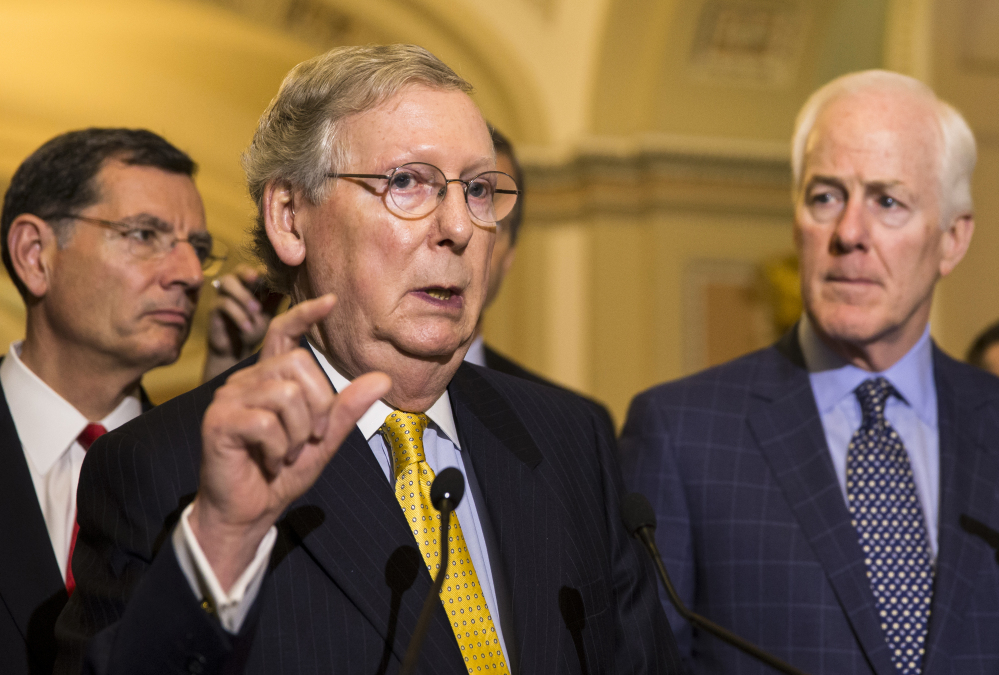WASHINGTON — Senate Republicans celebrated Tuesday after passing the first joint budget resolution in more than five years, but that success is just the start of the much more difficult task of funding the government.
Republicans said the next step will be for the Appropriations Committee to start drafting spending bills that meet the newly approved framework, which means cutting $496 billion in non-defense spending over the next decade. The budget resolution adheres to domestic spending caps included in the 2011 Budget Control Act, also known as the sequester, and uses nearly $40 billion in off-budget funds to boost defense spending to over $563 billion.
Maine’s senators split on the budget framework, with Republican Susan Collins voting in favor and independent Angus King opposing it. No Democrats voted for it. President Obama has vowed to veto any funding bills that fall within the framework. And even as the budget blueprint passed, most Republicans acknowledged that it will be impossible to meet their own standards. But Republican leaders insisted they would try anyway.
“Our only tool is the funding process, and we’re going to try to do that,” Senate Majority Leader Mitch McConnell said in an interview. “It will be challenging, but we’re going to try to delay, rein in, restrict various bureaucratic overreach through the appropriation bills that spend the money.”
Republicans may be able to get through the committee process, but it will be nearly impossible to advance legislation that closely adheres to their budget blueprint. Unlike in the House, where Republicans have enough votes to easily pass spending bills without the help of Democrats, the Senate will need the backing of at least six Democrats to bring their bills up for a vote.
Democrats vowed to block deep funding cuts for medical research, food stamps, housing programs for low-income workers, and the federal Pell grant program for students. Instead they are calling on Republicans to help craft a plan to lift the spending caps for both domestic and military spending. House Speaker John Boehner said last month that he would be open to a conversation about lifting the caps.
“We’re not going to sign on to a bill that goes to the sequester levels,” said Minority Whip Richard Durbin, D-Ill. “There is no reason for us to support these funding levels on the domestic side.”
Republicans said Tuesday that they will not waiver, leaving the sides at an impasse.
“We’re not going to waive the white flag on the day that we passed a budget agreement,” said Sen. Roger Wicker, R-Miss.
Copy the Story LinkSend questions/comments to the editors.



Success. Please wait for the page to reload. If the page does not reload within 5 seconds, please refresh the page.
Enter your email and password to access comments.
Hi, to comment on stories you must . This profile is in addition to your subscription and website login.
Already have a commenting profile? .
Invalid username/password.
Please check your email to confirm and complete your registration.
Only subscribers are eligible to post comments. Please subscribe or login first for digital access. Here’s why.
Use the form below to reset your password. When you've submitted your account email, we will send an email with a reset code.